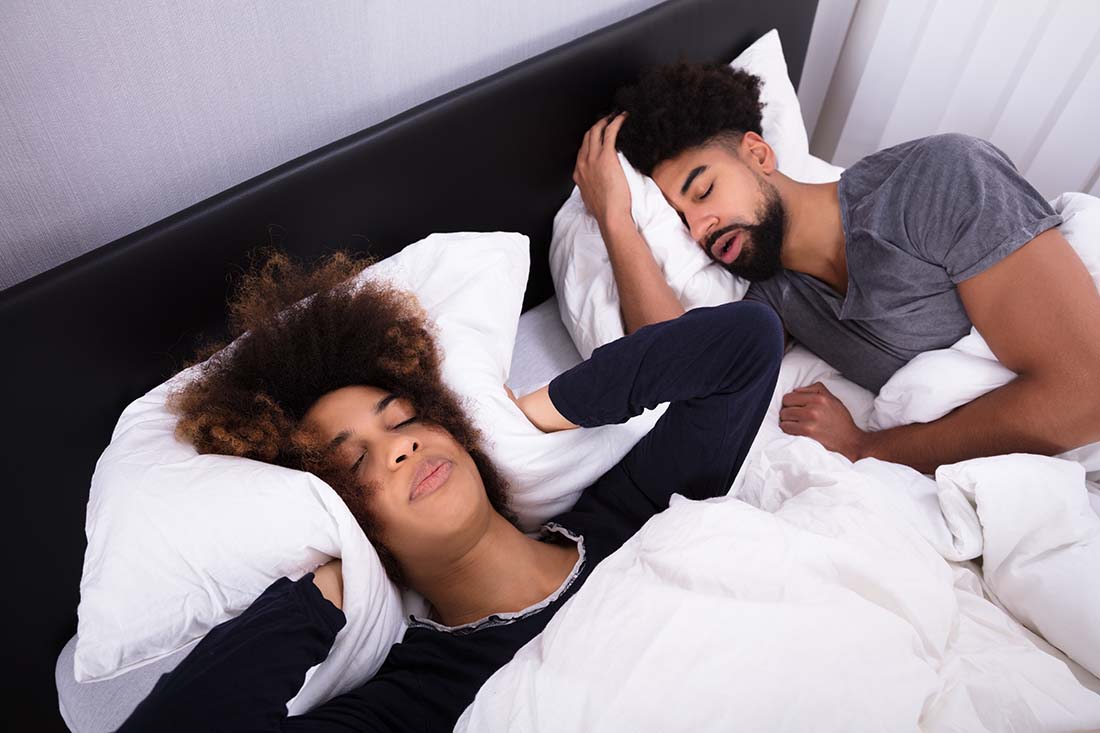
The Most Common Sleep Apnea Symptoms

Sleep apnea is a condition whereby you temporarily stop breathing when you sleep. The most common type of sleep apnea is obstructive sleep apnea; Something happens to block your attempts to take a breath as you sleep. Throat or tongue muscles may relax so completely that your airway collapses or is blocked, for example, or the weight of extra fat tissue presses on your esophagus and narrows it, as you lie prone. Episodes like this can happen literally hundreds of times a night, and you may have no memory of them the next day.
Snoring –
While occasional snoring is usually benign, chronic snoring is often a symptom of sleep apnea. It’s especially problematic if it’s loud enough to keep your partner awake. It’s also something that needs to be looked into if your partner tells you that you stop breathing for long periods of time: If you pause for 10 seconds or longer, and/or these episodes happen often – about every two to three minutes – seek professional help.
Startled Awake By Gasping Or Choking –
If you startle awake gasping for air, or you have dreams that you are gasping or choking, you may suffer from sleep apnea. This a hallmark symptom of sleep apnea; You choke or gasp as a reflexive action because when your breathing is interrupted, your oxygen levels drop. When they drop low enough, your body forces you to “awaken” (even though you may have no memory of it) so that you will take a breath of air.
Feeling Sleepy During The Day –
It’s normal to feel sleepy during the day if you’re getting too little sleep; most people need seven to eight hours a night to feel rested. But if you get enough hours of sleep daily and you’re still always sleepy – especially if you’re dozing off even when you’re actively engaged in something like conversation – it could be one of the sleep apnea symptoms.
Morning Headache –
Waking up in the morning with a headache is another common sleep apnea symptom. A headache can be the result of your struggle to breathe at night, both because of the oxygen deprivation, you experience and because your sleep is constantly interrupted as you startle awake to breathe.
Memory Problems –
When you go to sleep, your brain doesn’t. It stays active, busily processing what you’ve learned and experienced that day, and forms memories for later recall. However, you must be asleep long enough – and get enough quality sleep – for this to occur. If you experience other sleep apnea symptoms and you’re also having problems remembering events, “just the right word,” or other information, seek professional help for a proper diagnosis.
Depression –
While depression itself can cause insomnia and poor sleep quality, there’s growing evidence that sleep apnea and depression have a direct link. The continual “micro-awakening” episodes you experience if you have sleep apnea prevent you from getting the deep, restorative sleep you need for optimal emotional and physical health. In addition, you’re temporarily but continuously deprived of oxygen hundreds of times a night thanks to the apnea – meaning that every cell in your body, including your brain, is also deprived of oxygen. That can lead to depression
There’s help, if you or your partner suspect that you might suffer from the symptoms of sleep apnea, there’s help. You can start by taking our online Epworth Sleepiness Exam to begin the 4 step process in sleeping better.
